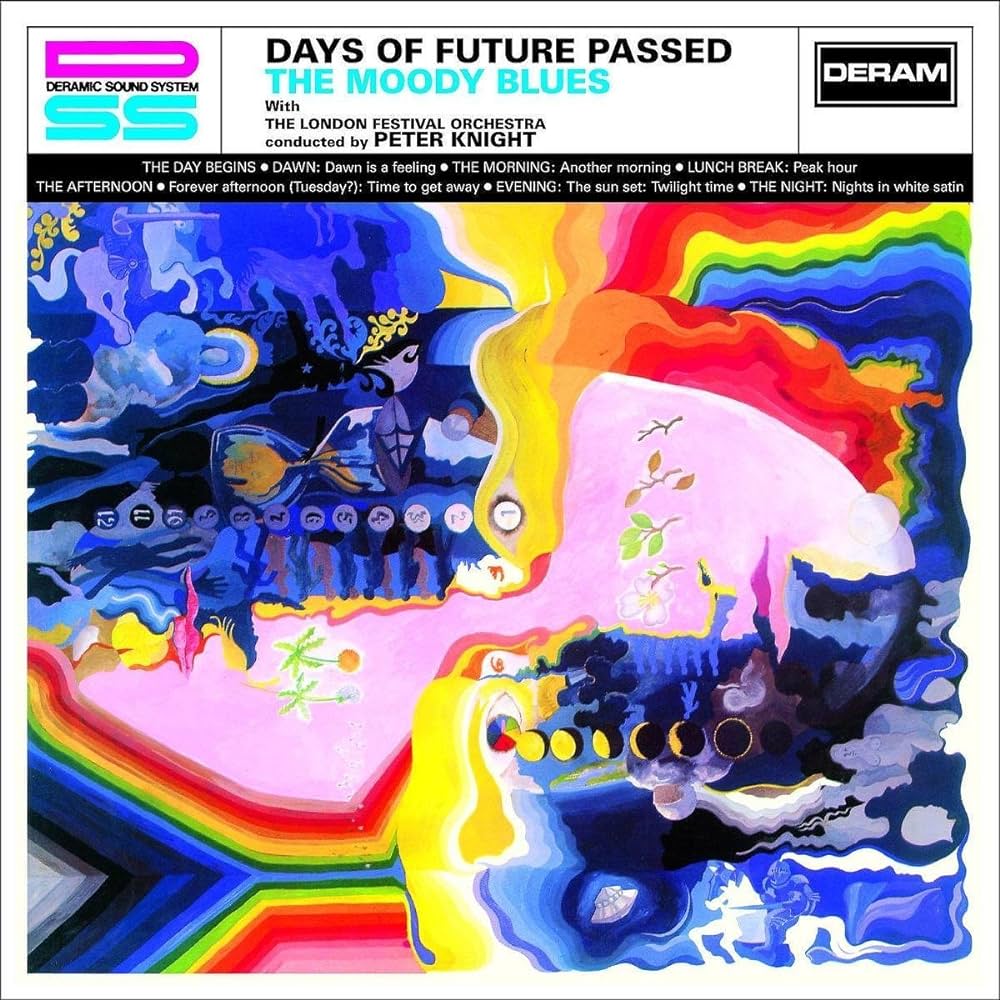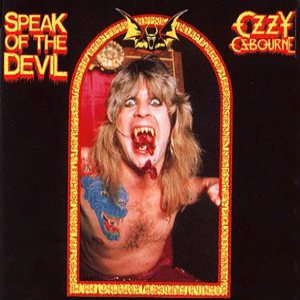In its most pure essence, what began as a requisition to record a symphony turned into an architectural masterpiece project of a new genre of music: Progressive Rock. When The Moody Blues were asked to record a symphony of Dvorak, they were astonished; however, they were also immensely interested into expanding their own creative voice through the project; the result was a authentic achievement both for the band and their expansive energy into the cosmos of Psychedelia and Classical composition that was new to the genre of Rock. Days of Future Passed surpasses anything of its kind, from arrangements of instruments to tensions of mood and impulse. The dynamics and range of vocals presume this album to be one of the most ornate and analytical merits in recording and production of music in the 1960’s.
The album’s mood is relaxing and inviting. It is full of polished verse, colorful melodies, and special poetical encoding in the lyrics that makes for excellent discussion among listeners and serious critics alike. The marvel of glazed orchestral and rock powered guitars are symmetrically mixed with dynamic infusion and melodic composure. Each embroidered introduction of song is exquisitely flavored by symphonic landscape along with acid rock navigation. There is a harmonic disturbance through the album that the listener can invigorate his intellect by simply transforming all the complexities into a mystical listening experience. Color, allegorical transcendence, and architectural acoustics are methodically displayed throughout the album’s entire lifespan. It is interesting to stop and ‘observe’ the poetical stanzas of sound and design each song imposes upon the listener. The moods can be quiet; they then can become cheery and uplifting in a splendid instant. The most commanding example is the song ‘Nights in White Satin” where the listener is invoked by a wave of intense but regulated scenery of instrumentation; the entire song is breathing with life, passion, and endurance. There are scenes in the song that articulate to the senses such as the smell of a cool night, a frosty scene of poetry that arrives at the end of the song; and there is also an embroidery of harmonics and orchestrated melodies that are fabulously dressed in nocturnal ascendance and tranquilized conviction. As the album’s nuance expands, it is punctuated by episodic interludes of quiet anxiety and tameless fervency.
The most impassioned performances, however, in this composition are the veritable examples of the theme itself. It is the focus of the day. A day in time, a day in the band, or a day on the planet itself; whatever may be the case, it is distinctively validated by each contributing band member by his own unique design. The genre of Progressive Rock owes its existence to this meritorious contribution of mystical orchestration and picturesque counter-culture tracery. 1967 was embellished lavishly by this cosmic creation of poetry, classism, and psychedelic romanticism. It is an astonishing crown of music, mood, poetry, and superlative providence in coming.
Days of Future Passed is an elegant and enchanting listening experience. It offers equally bisected fashions of music. It encapsulates the listener into a castle of sound that transiects its statements and suggestions into a serious phase of resounding gaiety as well as nominating an extremely interlaced connubiality of complicated tradition and experimentation.

THE MOODY BLUES: DAYS OF FUTURE PASSED
RELEASED: November 10th, 1967.
RECORDED: 9th of May-November 3rd, 1967.
LENGTH: 41:34.
PRODUCER: TONY CLARK, MICHAEL DACRE-BARCLAY.
© 2024, Mark Grago. All rights reserved.




